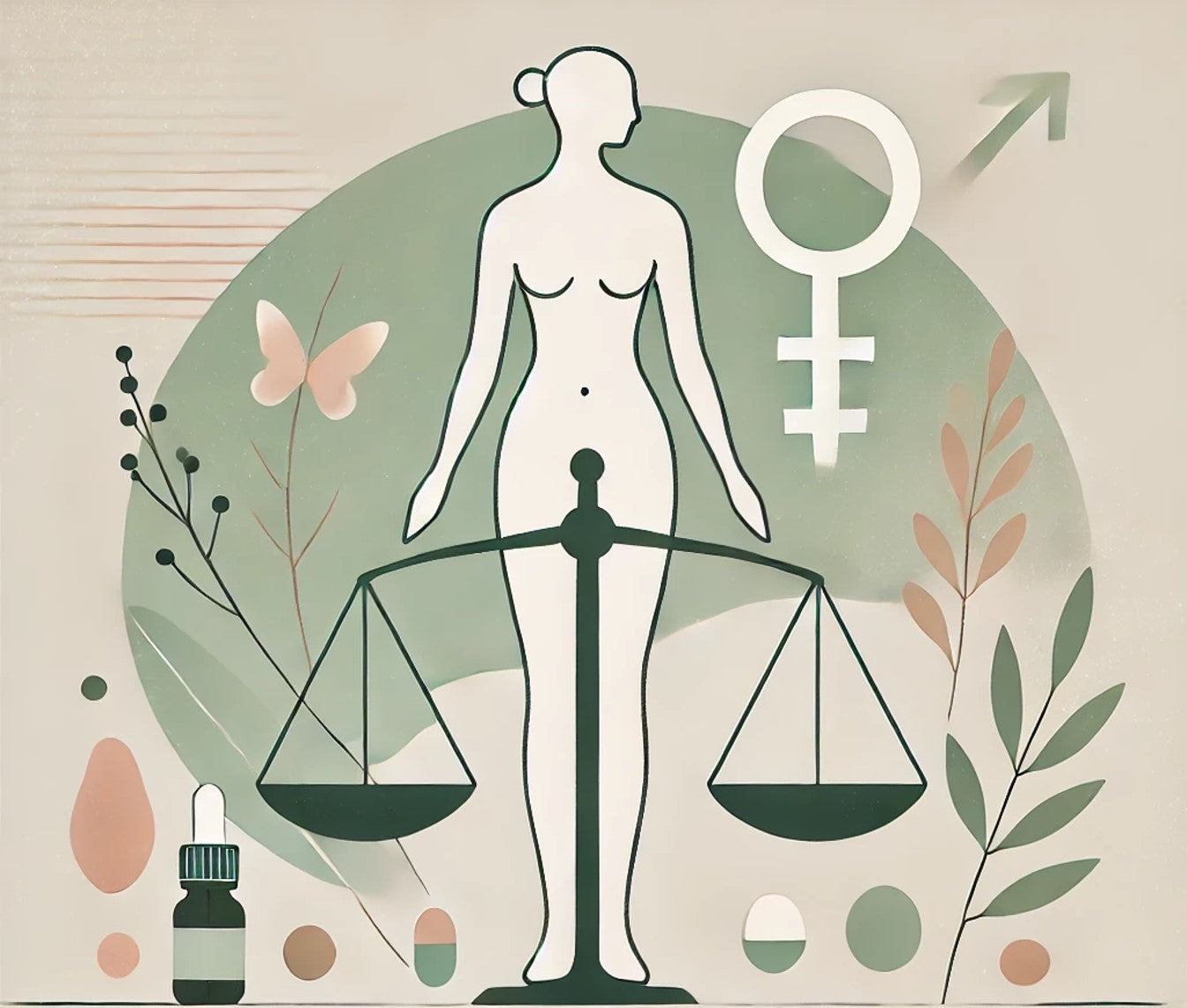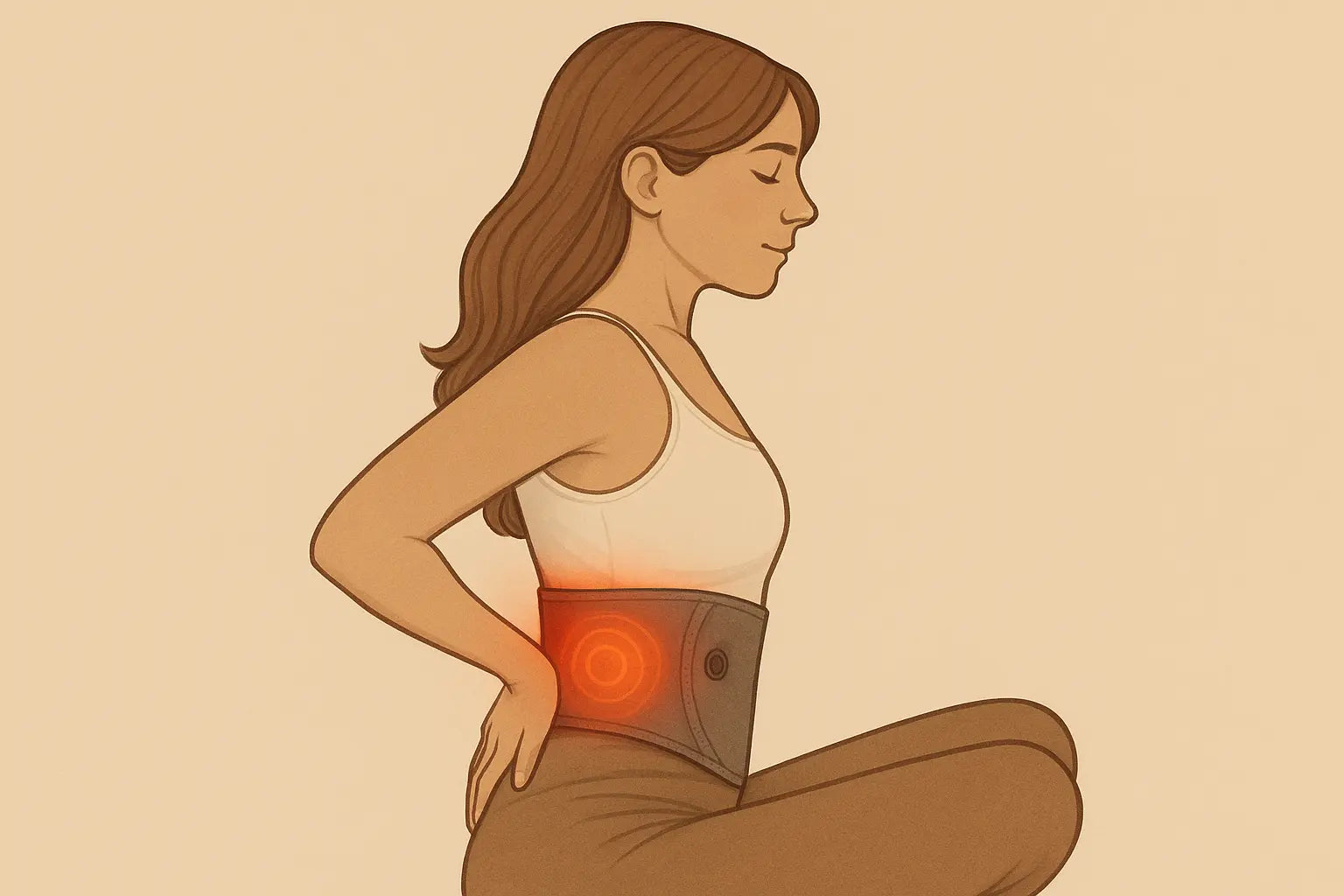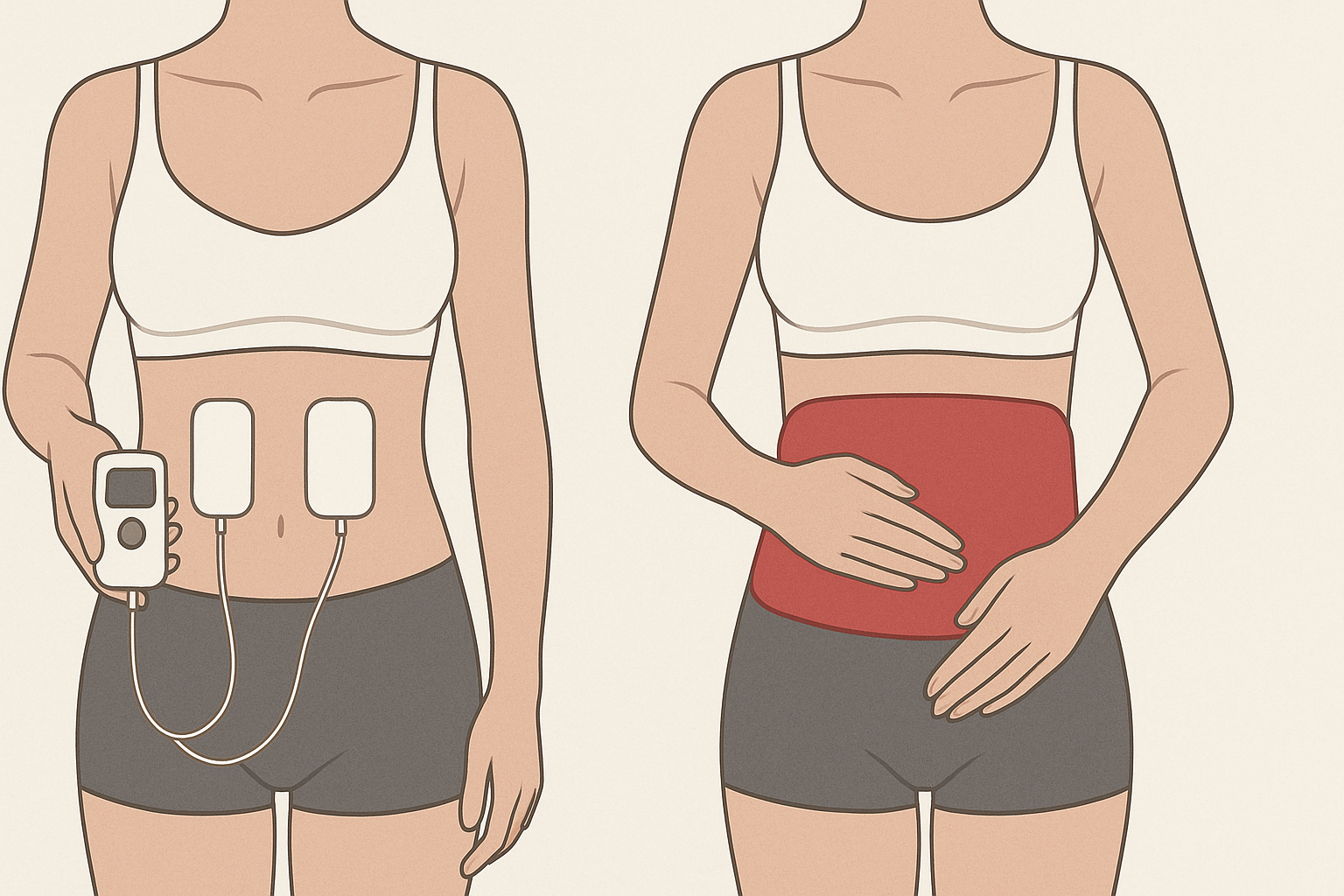Hormonal health is an essential component of a woman’s overall well-being. Hormones influence not only the menstrual cycle but also energy levels, mood, metabolism, and even sleep patterns. When hormones are in balance, the body functions smoothly. However, hormonal imbalances can disrupt this equilibrium, leading to various health issues. In this blog we provide a comprehensive look at how hormonal imbalances affect women's health and how lifestyle changes—particularly through diet, exercise, and stress management—can help restore hormonal balance. This article will also explore recent trends such as cycle-based training, supplements for hormone balance, and hormone-free contraceptive methods.
What is Hormone Balance?
Hormones are chemical messengers produced by various glands in the endocrine system, such as the ovaries, adrenal glands, and thyroid. They regulate essential bodily functions, including metabolism, reproductive cycles, mood, and sleep patterns. In women, the key hormones include estrogen, progesterone, testosterone, and cortisol.
Hormonal balance refers to the state where these hormones are present at the correct levels for the body to function optimally. For example, estrogen and progesterone should fluctuate according to the menstrual cycle, while cortisol, the stress hormone, should peak in the morning and taper off by night. A hormonal imbalance occurs when one or more hormones are too high or too low, leading to disruptions in physical and mental well-being.
Common Causes of Hormonal Imbalances
Hormonal imbalances can arise from various factors. Some of the most common causes include:
-
Chronic Stress: Prolonged exposure to stress can lead to consistently high levels of cortisol, which can interfere with the balance of reproductive hormones like estrogen and progesterone.
-
Poor Diet: Diets high in sugar, processed foods, and unhealthy fats can trigger inflammation, insulin resistance, and ultimately, hormone dysregulation.
-
Physical Inactivity or Over-Exercise: Both extremes—lack of physical activity or excessive exercise—can disrupt the natural rhythm of the menstrual cycle and hormone production.
-
Lack of Sleep: Sleep deprivation affects the production of key hormones, such as melatonin and cortisol, which are involved in regulating circadian rhythms and stress responses.
-
Environmental Toxins: Exposure to endocrine-disrupting chemicals (EDCs), such as BPA found in plastics, can mimic hormones and interfere with their natural function.
-
Age and Menopause: Hormonal changes associated with aging, particularly around menopause, can naturally cause shifts in estrogen and progesterone levels.
Effects of Hormonal Imbalances on Health
Hormonal imbalances can manifest in various physical and mental health symptoms. Here are some common effects:
-
Irregular Menstrual Cycles: A common sign of hormonal imbalance, particularly related to estrogen and progesterone. Women may experience heavy periods, missed periods, or spotting between cycles.
-
Polycystic Ovary Syndrome (PCOS): A hormonal disorder characterized by excess androgen (male hormone) production, irregular periods, and cysts in the ovaries. PCOS often leads to fertility issues and metabolic complications.
-
Endometriosis: Although the cause is not fully understood, hormonal imbalances—specifically excess estrogen—can contribute to the abnormal growth of uterine tissue outside the uterus, causing painful periods and potential fertility problems.
-
Mood Swings and Mental Health Issues: Fluctuations in estrogen and progesterone can affect neurotransmitters such as serotonin and dopamine, leading to mood disorders, anxiety, or depression.
-
Weight Gain and Metabolic Changes: Imbalances in insulin, cortisol, and thyroid hormones can make it difficult to regulate metabolism, leading to weight gain, fatigue, and difficulty losing weight.
-
Skin and Hair Changes: Androgens, when elevated, can cause acne, oily skin, and hair thinning in women.
-
Chronic Fatigue and Sleep Issues: A lack of balance in progesterone and cortisol can interfere with the body’s ability to fall asleep and stay asleep.
Natural Ways to Balance Hormones: Nutrition, Exercise, and Lifestyle
While medical interventions are sometimes necessary to address significant hormonal imbalances, many women can benefit from natural lifestyle adjustments that promote hormonal health. Below are some practical approaches:
1. Nutrition and Hormone Balance
The right diet plays a crucial role in maintaining hormone health. Here are key principles that can support hormonal balance:
-
Healthy Fats: Hormones are synthesized from fats, making healthy fat intake essential for hormonal health. Omega-3 fatty acids found in fish, flaxseeds, and chia seeds, along with monounsaturated fats from avocados, olive oil, and nuts, support the production of estrogen and progesterone.
-
Protein: Adequate protein intake is necessary for maintaining healthy insulin and growth hormone levels. Protein-rich foods, such as eggs, lean meats, fish, and legumes, help in hormone production and tissue repair.
-
Fiber-Rich Foods: High-fiber foods like vegetables, fruits, and whole grains can help the body eliminate excess estrogen, particularly through improved digestion and bowel regularity.
-
Limit Sugar and Refined Carbohydrates: A diet high in sugar can lead to insulin resistance, which in turn affects the balance of reproductive hormones like estrogen and testosterone. Avoiding excessive sugar and processed foods can help stabilize hormone levels.
-
Adaptogenic Herbs and Spices: Certain herbs like ashwagandha, rhodiola, and turmeric can help reduce cortisol levels and improve stress response, which in turn supports hormone balance.
2. Exercise: Cycle-Based Training
Recent research suggests that women can optimize their fitness routines by aligning exercise with the phases of their menstrual cycle—a concept known as cycle-based training. This approach recognizes that hormonal fluctuations affect energy levels, strength, and endurance.
-
Follicular Phase (Day 1–14): During this phase, estrogen levels rise, and women tend to feel more energized and stronger. This is the ideal time for high-intensity workouts, such as weightlifting, interval training, and endurance sports.
-
Ovulation (Around Day 14): Estrogen peaks just before ovulation, making this a great time for personal records in strength and stamina.
-
Luteal Phase (Day 15–28): After ovulation, progesterone rises, and women may feel more fatigued. During this time, it's beneficial to shift to low-impact exercises such as yoga, pilates, or moderate cardio.
Cycle-based training helps women avoid overtraining and reduces the risk of injury or burnout. Listening to your body’s natural energy fluctuations can improve performance while supporting hormonal balance.
3. Stress Management and Sleep
Stress management is essential for maintaining balanced cortisol levels, which in turn supports overall hormonal health.
-
Mindfulness and Meditation: Practicing mindfulness or meditation daily can help reduce cortisol levels and improve emotional resilience. Yoga and deep breathing exercises are also effective in managing stress and calming the nervous system.
-
Adequate Sleep: Sleep is a critical factor for maintaining hormonal balance, particularly for hormones like melatonin, growth hormone, and cortisol. Aim for 7-9 hours of uninterrupted sleep each night. Establishing a consistent bedtime routine can help regulate circadian rhythms, further supporting hormone production.
Supplements for Hormone Balance
Nutritional supplements can also play a role in supporting hormone balance. Here are some popular supplements used by women to maintain or restore hormonal health:
-
Maca Root: Known for its ability to balance estrogen levels and alleviate symptoms of menopause and PMS, maca root can help regulate the menstrual cycle and improve fertility.
-
Vitamin D: Low levels of vitamin D are linked to hormonal imbalances, particularly involving estrogen and testosterone. Ensuring adequate vitamin D levels can support overall hormonal health.
-
Magnesium: Magnesium supports the adrenal glands, reduces stress, and improves sleep, making it a key mineral for hormonal balance.
-
Vitex (Chasteberry): Often used to treat PMS, irregular periods, and fertility issues, Vitex helps balance estrogen and progesterone levels, particularly in women with PCOS or luteal phase deficiencies.
-
Inositol: This supplement is often recommended for women with PCOS, as it can improve insulin sensitivity and promote a regular menstrual cycle.
Hormone-Free Contraceptive Methods
With growing concerns over the long-term use of hormonal contraceptives, many women are opting for hormone-free contraceptive methods that do not interfere with the body's natural hormone production. Some popular hormone-free options include:
-
Copper IUD (Intrauterine Device): This small device is inserted into the uterus and prevents pregnancy without the use of hormones. It can last up to 10 years and is highly effective.
-
Fertility Awareness Methods (FAM): These methods involve tracking the menstrual cycle, basal body temperature, and cervical mucus to predict ovulation and avoid pregnancy. When used correctly, FAM can be highly effective but requires diligence and accurate tracking.
-
Barrier Methods: Condoms, diaphragms, and cervical caps are hormone-free methods that provide reliable protection against pregnancy when used properly.
Hormone-free contraceptive methods offer women control over their fertility without altering their hormonal landscape, making them attractive alternatives for those concerned about hormonal health.
Hormonal balance is a vital aspect of a woman's health and well-being, influencing everything from mood to metabolism and menstrual health. While hormonal imbalances can have wide-ranging effects, they can often be managed and corrected through lifestyle changes. By adopting a balanced diet, incorporating cycle-based training, managing stress, and considering natural supplements, women can take control of their hormonal health.
Additionally, hormone-free contraceptive methods provide viable alternatives for women seeking to maintain hormonal balance while preventing pregnancy. As with any health concern, it's important to consult with a healthcare provider to determine the best course of action tailored to individual needs and symptoms.
By understanding the root causes of hormonal imbalances and embracing holistic approaches, women can support their menstrual health and achieve lasting hormonal balance.
Sources
-
Mayo Clinic – Guides on conditions like PCOS and Endometriosis, two common effects of hormonal imbalances: Polycystic Ovary Syndrome (PCOS) | Endometriosis
-
National Institute of Environmental Health Sciences (NIEHS) – Environmental toxins and their effect on hormones: Endocrine Disruptors
-
American College of Obstetricians and Gynecologists (ACOG) – Guidelines on menstrual health, including dietary and exercise advice: Nutrition in Women's Health
-
Office on Women's Health (U.S. Department of Health & Human Services) – General information on hormonal health, birth control, and alternatives: Hormonal Health | Non-Hormonal Birth Control Methods
-
Journal of Clinical Endocrinology & Metabolism – Scientific studies on hormonal balance and interventions: Cycle-Based Training and Hormonal Health
-
WebMD – A reliable source for symptoms, causes, and treatments for hormonal imbalances: Hormonal Imbalance Symptoms



